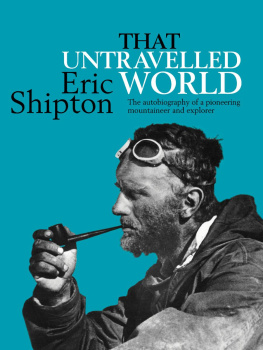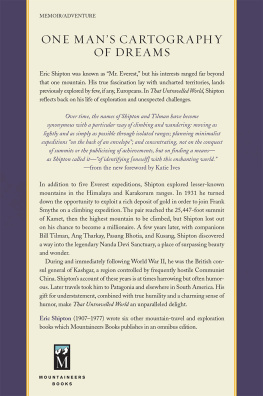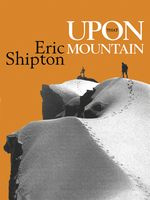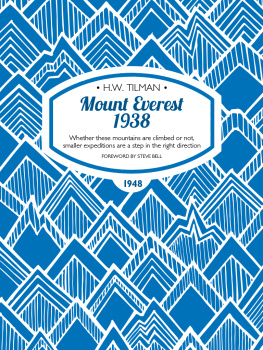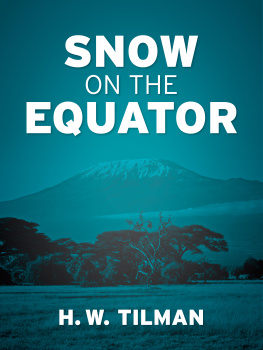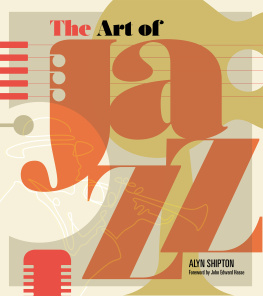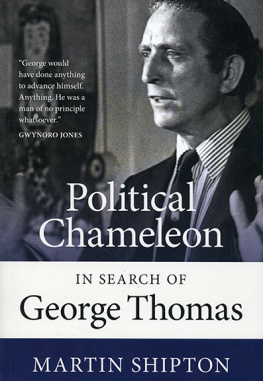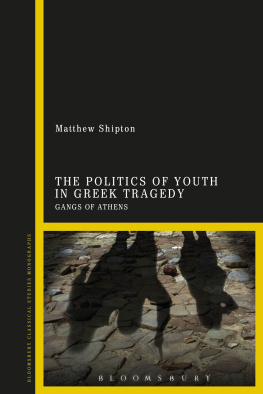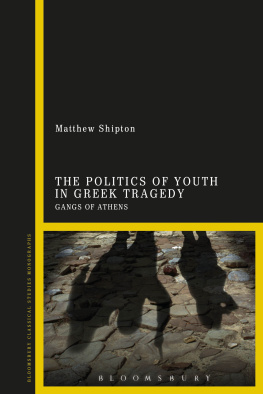Childhood experiences we are told play an important, indeed a decisive, part in the shaping of our individual characters. This can hardly be denied; but I find it less easy to believe that their effect can be confidently predicted in terms of good or bad, success or failure, happiness or misery. Children are remarkably resilient and readily accept as normal the most preposterous situations to which they are accustomed; but, as with adults, one child may benefit by a traumatic ordeal, which would warp the development of another. Churchills parents, for example, seem to have broken every rule in the book, and it is evident that the young Winston was bitterly resentful of their neglect. Is it not probable that this provided the stimulus for the fanatical determination to make good which characterised his early career, and that had he been pampered as a child we might well have been deprived of our wartime leader? The early struggles of David Livingstone, which resulted in the development not only of a tenacious explorer but also of a great humanitarian, might have broken a less robust spirit. The course of our lives is steered by a complex interaction of influences, and it is often from our setbacks, even our weaknesses, that we derive some of our greatest blessings.
I was born in 1907 in Ceylon, where my father was a tea planter. He died before I was three, so that I have no recollection of him; nor have I the slightest idea what he was like. That I did not attempt to discover something about him was due mainly to the fact that my mother was extremely reserved and never encouraged intimate discussion. She never mentioned him, and as I had no reason to suppose that a father was in any way essential to my existence, his absence and with it his character had no particular significance. That my lack of curiosity about him persisted throughout adolescence and early manhood is less easy to explain; but early habits of thought become securely lodged. My sister, two years older, believes that my mother was afraid that she would be unable to cope adequately with my upbringing alone, and her reticence may well have been due to her fear that by talking about my father I would come to miss him. I do not even know the cause of his death. Recently, however, I have learned two facts about him: one, that he was a devoted husband, the other, that he spent a great deal of his spare time in the jungle watching birds a passionate interest of his and that he had a remarkable ability to attract them to him. Presumably he, too, had been born in Ceylon, for his father, a doctor, had come to live there about 1870. His mother I vaguely remember as a sweet old lady.
For several years after my fathers death we were constantly on the move, travelling between England and Southern India and Ceylon, where my mother retained close ties; and also in France, where she had many friends and where her mother had a house on the South Coast. We were never in one place for long and had no settled home, which is generally thought to be essential for the psychological welfare of children. So far as I remember, I found this nomadic existence wholly delightful; I revelled in the thrill of train and ship travel and in each change of scene. One of my earliest recollections is of arriving somewhere after a particularly exciting journey and asking eagerly how long it would be before we set off again; I was told that we would be staying a fortnight. Four nights seemed an awful long time to wait; and when I discovered that the word meant two weeks I wept bitterly. Of course my memories of this period are scattered and quite unrelated in time and place; nonetheless some of them remain vivid, exquisite gems of delight framed in mist: steep sun-drenched valleys around Sospel, inland from Menton; a path running between green cliffs to a little bay of coral sand shaded by coconut palms; a whale spouting and an island volcano belching smoke. (Later I thought this an unlikely combination until, a few years ago, I saw a whale at very close quarters near Stromboli, which I must have passed several times as a child.)
About 1914 we spent a year in the Nilgiri Hills in South India, the longest period we had hitherto stayed in one place. But it was a happy one, for we were allowed a great deal of freedom and there was plenty to stimulate the imagination in that lovely country. It was then that my mother remarried, an event that made little impact upon me. My stepfather was not with us for long, as he joined the Army soon after the outbreak of war and was sent to France; so I suppose I regarded him as just another adult who came and went like the rest. He was killed in action in 1917.
A solitary child, I preferred doing things on my own to the company of other children. I hated parties, and competitive games made me feel miserably embarrassed. I had a persistent belief that I was generally disliked; this may well have been the case, for, though tolerant, my behaviour was sufficiently antisocial to make me unpopular with children and adults alike. But I was by no means unhappy, for I spent most of my time in a pleasant, often exciting daydream, concerned entirely with my natural environment: the jungles, the hills, the sea and the sky. I think I was unusually aware of scenery; sunset colours, for example, or morning mists rising out of a valley stirred me deeply. The moon had a powerful effect upon my imagination, and, I remember several dreams in which I was chasing it over the hills behind our house. My travels had no doubt stimulated my concept of a boundless world. In matters of practical application I was, even at this age, decidedly inept.
The last of my journeys as a child left by far the most memorable impression; partly because I was old enough to co-ordinate the events connected with it and partly because of its contrast with the comparative flatness of the years that followed. It started by train from the jungle-clad gorges of the Nilgiris to the sandy tip of India; then across the Palk Strait to an enchanted dawn of intoxicating scents and vivid colours, travelling swiftly past coconut palms and paddy fields to the central highlands. We stayed several weeks in various parts of Ceylon waiting for a ship (no doubt the war had already disrupted normal sailings); each place seemed more exciting than the last. At length we went to Colombo and embarked in SS Kashgar for what seemed then a lifetime of bliss. Because of the U-boat menace and other wartime exigencies, the voyage took nearly twice as long as usual. We called at many ports; at some we stopped for several days. Everything was wildly exciting. There were few children on board; the crew was very kind to us, and we were allowed to visit every part of the ship. One evening when I was supposed to be in bed I was found to be missing; some hours later, when the whole ships company had been alerted, I was discovered in the wireless cabin. Considering the anxiety I had caused, my mother was remarkably tolerant. For many years that voyage represented a peak of happiness which seemed unlikely ever to be regained. The name Kashgar assumed a kind of mystic significance, which, oddly enough, was revived some decades later in quite another context.
It is hardly surprising that wartime England seemed drab, or that I found it hard to settle into a circumscribed life in a London flat; its main features were lessons with a governess and walks in the park. I began to live more and more in a dream world and to respond still less to the company of other children. My sister, on the other hand, was a gregarious little girl, and though she was kind and affectionate towards me, my feeling of being odd man out in any company increased. The following year I was sent to a preparatory school.
Much is said these days about the psychological evils likely to result from sending eight-year-old children to boarding school. Personally I am inclined to think that the danger has been exaggerated, at least so far as the great majority of boys is concerned. In my own case, though I was both physically and mentally backward and more than usually shy, I do not believe that I suffered any serious harm from the experience. On the other hand, though I always disliked school and seem to have learnt incredibly little in the nine years I spent there, I am prepared to admit that I acquired some important attributes, such as a moderate ability to deal with my fellows and some measure of stoicism, which would have been less likely to develop at home. Certainly during my first term or two I often suffered an aching loneliness, all the more bitter for the boisterous company surrounding me. But the instinct for self-preservation is strong, and I managed soon to adapt myself to the strange way of life, to the outlandish jargon of my schoolmates, to the use of surnames (at first I was scarcely aware of my own; my mother having a different one, I suppose I had hardly ever heard it) and to conformity with a series of meaningless rites.

